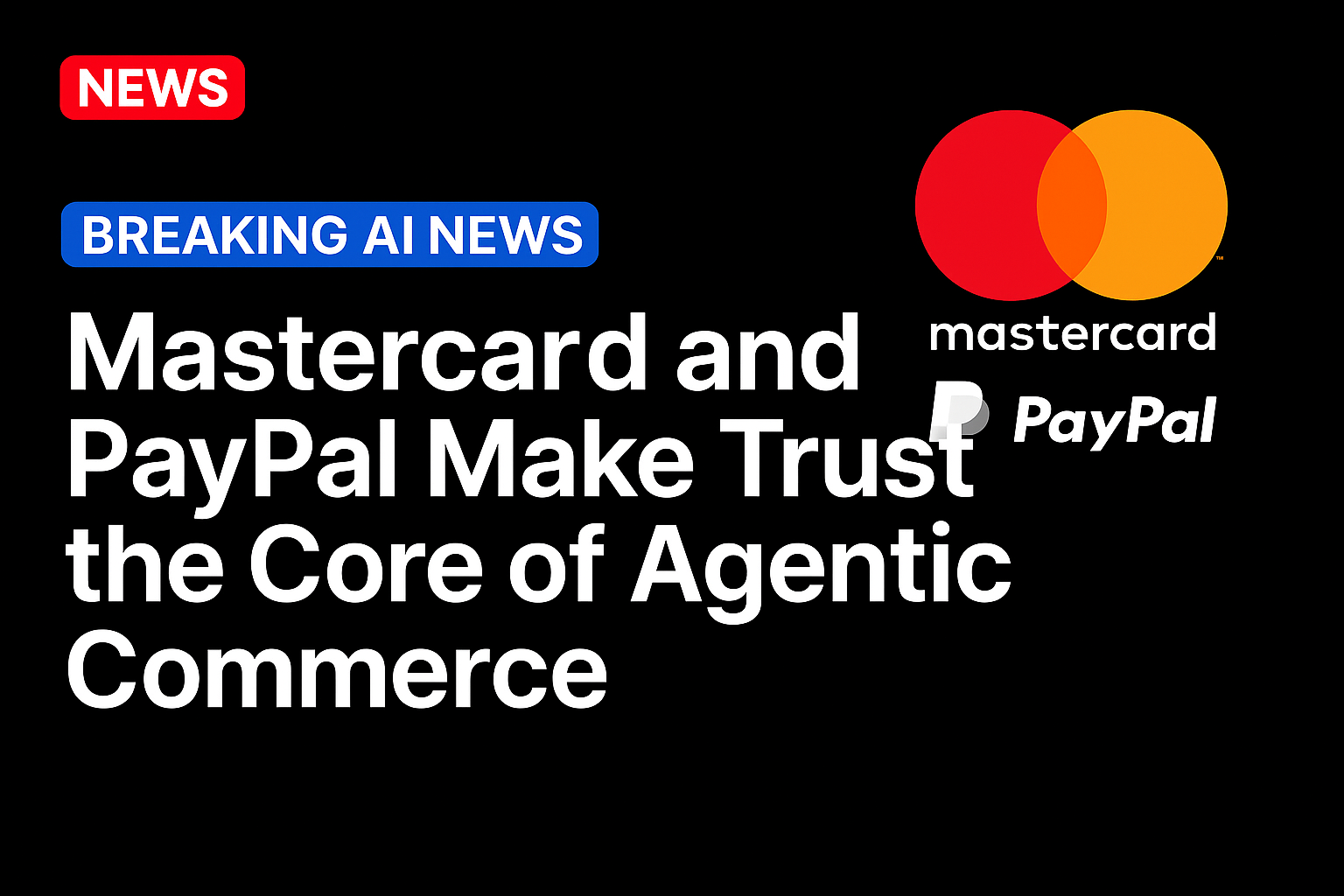
Mastercard and PayPal are deepening their partnership to bring agentic AI transactions into the mainstream. Under the agreement, Mastercard’s Agent Pay platform will be integrated into PayPal’s branded checkout wallet. The move allows consumers using PayPal to make purchases guided by artificial intelligence assistants, with Mastercard providing the secure payment rails behind the scenes. The collaboration extends to PayPal’s millions of merchants and Mastercard’s co-branded credit and debit cards, creating a shared infrastructure for agent-driven commerce at global scale.
PayPal will pilot Mastercard’s Agent Pay Acceptance Framework to ensure that AI-initiated payments meet common security and verification standards. The integration uses Mastercard’s tokenization and passkey authentication so consumers can authorize their artificial intelligence agents safely and merchants can accept agent-originated payments without additional technical work. Mastercard said the partnership would help reduce friction, boost conversion rates and expand consumer choice as “agentic” commerce becomes more common.
The deal also situates Mastercard’s Agent Pay technology at the center of the emerging ecosystem that connects wallets, merchants and intelligent systems, giving both companies a foothold in what could become the next frontier of digital payments.
Pablo Fourez, Mastercard’s chief digital officer, said the PayPal partnership underscores how quickly agentic AI is moving from pilot to practice.
“We’re not doing this in isolation,” he told PYMNTS. “It’s all about engaging with partners across the industry — consumers, issuers, acquirers and merchants — to make sure agentic commerce happens securely and at scale.”
He emphasized that the collaboration model mirrors earlier phases of payments innovation, such as the rollout of tokenization for mobile wallets, where broad industry coordination built trust and consistency.
Fourez described the Mastercard-PayPal tie-up as one of several partnerships driving the next stage of AI-powered commerce. Alongside recent integrations with Google, Cloudflare and OpenAI, Mastercard is building the framework that allows AI agents to interact safely with merchants. “We are very methodically looking at what needs to be standardized and solved,” he said, noting that agent verification, consent capture and dispute management are critical to scaling agent-to-merchant transactions.
He added that the first wave of agentic experiences will likely debut during the 2025 holiday shopping season, as merchants and consumers test new use cases in real commerce environments. “This is going to be a paradigm shift in how commerce is done,” Fourez said. “It’s probably a bigger shift than the move to mobile — because it’s not just about how you pay, it’s about the entire commerce experience.” Mastercard’s goal, he said, is to ensure that all cardholders and merchants on its network can participate safely from day one.
For merchants, Fourez said trust remains the foundation of agentic commerce. “We want to help all merchants on our network engage in agent commerce,” he said. “Our job is to make it easy for them to get started while giving them the assurance that every transaction is authenticated, tokenized and consented.” That, he added, is how Mastercard intends to bring its long history of securing payments into a new era of AI-driven interactions — one where trust, not just technology, becomes the defining competitive advantage.
Fourez has written a blog post in support of Mastercard’s agentic initiatives, “Scaling Agentic Commerce with Trust.” It situates Mastercard’s Agent Pay as both an innovation platform and an industry blueprint. He writes that agentic commerce represents a “paradigm shift” in digital payments. But with that shift comes the challenge of ensuring merchants can distinguish legitimate AI agents from malicious bots, and verify that consumers have truly authorized the transactions. Fourez argues that without common standards, merchants risk fraud, disputes and eroded trust, making a unified, interoperable framework essential to scaling agentic commerce responsibly.
To address those concerns, Mastercard registers and verifies artificial intelligence agents before they transact, using cryptographically secure agentic tokens to authenticate every interaction. The framework also supports “no-code” integration via Web Bot Auth, allowing merchants to safely recognize trusted agents through their existing checkout systems. Over time, merchants can deepen integration using protocols such as Model Context Protocol and Agent2Agent for richer, more personalized experiences. Partnerships with Cloudflare, FIDO and other ecosystem players are central to this strategy, ensuring that agentic commerce evolves around shared standards for verification, privacy and interoperability.
Fourez said, “By setting the standards today, Mastercard is ensuring that the commerce of tomorrow is built on a foundation of trust.”
Source: https://www.pymnts.com/




